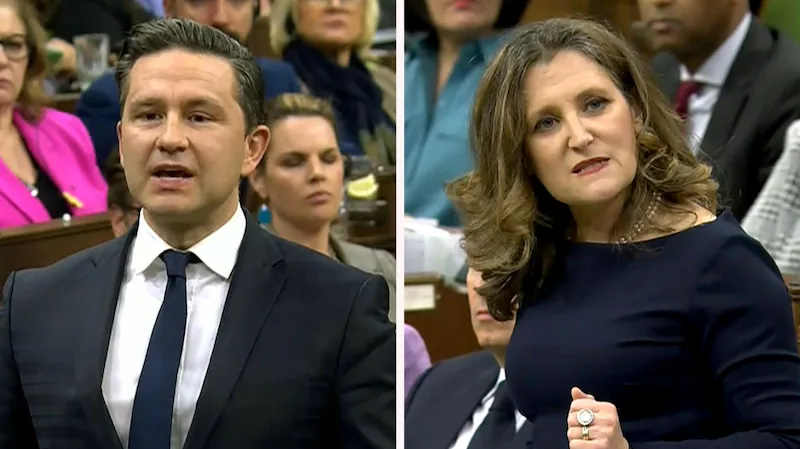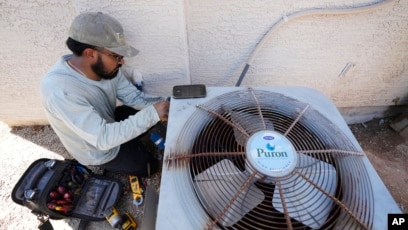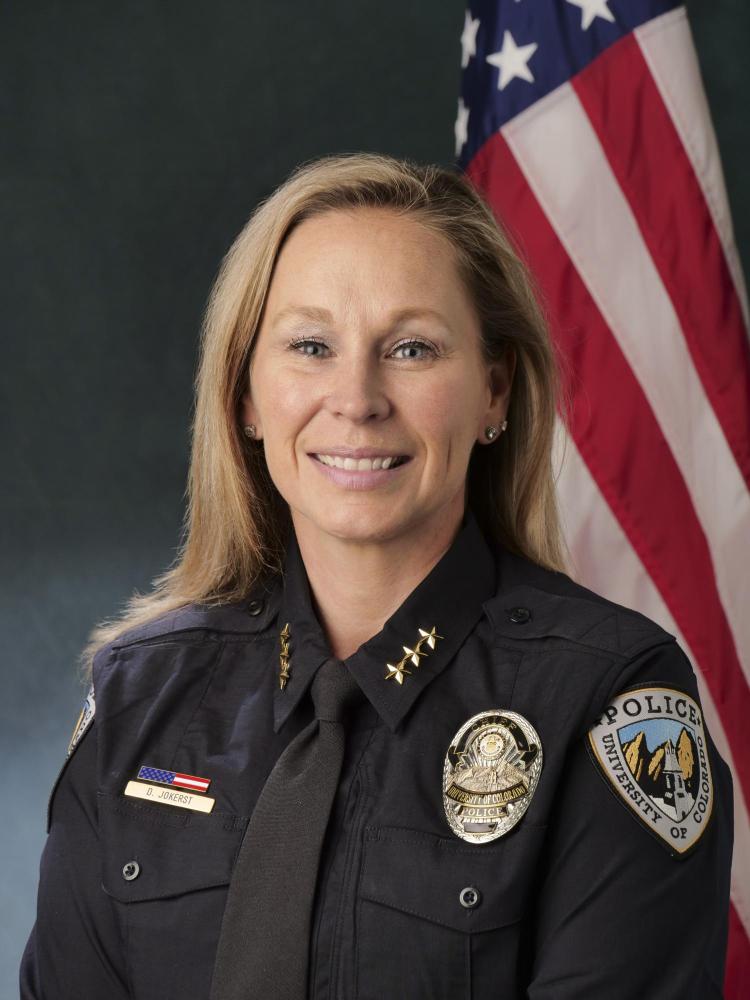‘I am not MAGA’: Poilievre, Freeland respond to latest Trump attacks
Canadian leaders have fired back against U.S. President Donald Trump’s latest round of attacks against them, including the claim that Conservative leader Pierre Poilievre is ‘not a MAGA guy.”
“Mr. President, it is true. I am not MAGA. I am for Canada First. Always,” Poilievre wrote in a Friday afternoon post to X, hours after the Trump comments were made public.Canada has always been America’s best friend & ally. But we will NEVER be the 51st state.”In a recent interview with The Spectator, U.S. President Donald Trump launched verbal attacks on prominent Canadian political figures, notably Conservative Leader Pierre Poilievre and Deputy Prime Minister Chrystia Freeland. Trump criticized Poilievre for not fully embracing the “Make America Great Again” (MAGA) movement, stating, “He’s not a MAGA guy.” He also referred to Freeland as “a whack,” dismissing her political stance.
These comments have elicited strong responses from both Canadian leaders, highlighting the growing tensions between the U.S. administration and Canadian officials.
Pierre Poilievre’s Response:
Pierre Poilievre, leader of the Conservative Party of Canada, firmly distanced himself from Trump’s remarks. In a press conference held in Ottawa, Poilievre stated, “I am not MAGA; I am Canadian. My allegiance is to the people of Canada, and my commitment is to uphold our nation’s sovereignty and interests.” He emphasized that Canada’s political direction should be determined by Canadians, free from external influence. Poilievre further criticized Trump’s recent threats to impose tariffs on Canadian goods and his suggestion that Canada could become the 51st U.S. state, labeling such notions as “unacceptable” and “an affront to our independence.”
Chrystia Freeland’s Response:
Deputy Prime Minister Chrystia Freeland also addressed Trump’s derogatory comments during a media briefing in Toronto. She remarked, “Name-calling and personal attacks are beneath the dignity of our offices. Canada will not be intimidated by such rhetoric.” Freeland reiterated Canada’s commitment to maintaining strong, respectful international relations and underscored the importance of standing firm against unjustified economic threats. She called for unity among Canadians in the face of external pressures and emphasized the need to protect Canada’s economic interests.
Impact on Canadian Politics:
Trump’s comments have significantly influenced the Canadian political landscape. The ruling Liberal Party, which had been trailing in polls, has experienced a resurgence in support. This shift is largely attributed to a wave of Canadian nationalism in response to Trump’s aggressive stance. Recent polls indicate that public support for the Liberals has surged to 38%, closely trailing the Conservative Party’s 36%. The political dynamic has shifted, with the Conservative Party facing backlash from rising anti-Trump sentiment.
The Liberal Party’s leadership race, prompted by former Prime Minister Justin Trudeau’s resignation, has become a focal point. Candidates are positioning themselves as the best choice to counter Trump’s policies and protect Canada’s sovereignty. Mark Carney, a former central banker, has emerged as a frontrunner, emphasizing his experience in managing economic crises and advocating for strong countermeasures against U.S. economic threats.
Public Reaction:
Canadians have expressed a mix of outrage and resolve in response to Trump’s comments. Social media platforms are abuzz with hashtags like #StandWithCanada and #ProudlyCanadian, reflecting a collective pushback against perceived U.S. bullying. Public opinion polls show a significant increase in national pride and a rallying around leaders who are seen as standing up to Trump’s rhetoric.
Economic Implications:
The looming threat of U.S. tariffs has raised concerns about potential economic repercussions for Canada. Industries that rely heavily on cross-border trade are particularly anxious about the impact on jobs and revenue. In response, Canadian officials are exploring diversification of trade partnerships and strengthening internal markets to mitigate reliance on the U.S. economy.
International Perspective:
Global observers are closely monitoring the escalating tensions between Canada and the United States. Many view Trump’s comments as part of a broader pattern of aggressive foreign policy. Allies have expressed support for Canada, emphasizing the importance of diplomatic solutions and mutual respect among nations.
Conclusion:
The recent exchange between President Trump and Canadian leaders underscores the fragility of international relations in the current geopolitical climate. As Canada navigates these challenges, the unity and resilience of its leaders and citizens will play a crucial role in safeguarding the nation’s sovereignty and economic stability.






